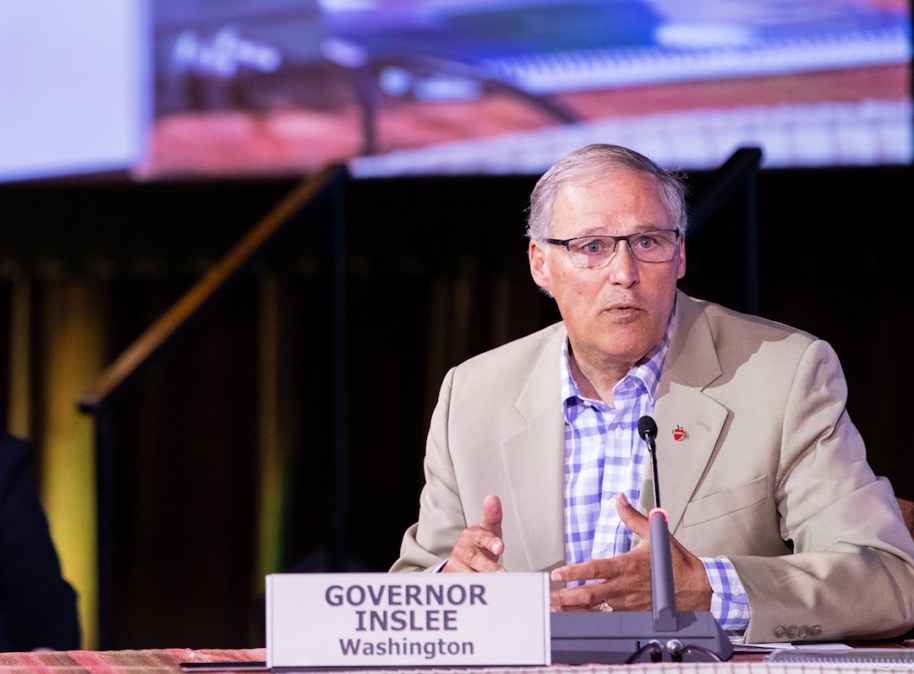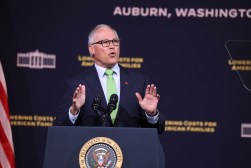Washington Gov. Jay Inslee says state is ready to go to court with feds over net neutrality

The federal government wasted no time in suing California last month as soon as it enacted a new law establishing on a state level many of the same net neutrality rules the Federal Communications Commission overturned nationally. On Tuesday, Gov. Jay Inslee of Washington, who signed his own net neutrality package into law in March, invited the Trump Administration to challenge his state next.
“Bring it on,” Inslee said at an event hosted by KEXP , a public radio station in Seattle. “If the president sues us, we’ll be ready.”
Other than going after California, the Justice Department has not made any public signs it intends to sue Washington or any of the seven other states that have sought to impose their own set of rules regulating how internet service providers provide access to online content.
Inslee has been at the forefront of the pushback against the FCC’s decision last December to vacate its own 2015 Open Internet Order. That act barred ISPs from throttling the speeds at which certain types of content are delivered to users, as well a practice known as “paid prioritization,” in which a deep-pocketed provider — such as Netflix — can afford to pay an ISP for quicker delivery of its content to consumers.
The Democratic governor, who’s often mentioned as a potential presidential candidate in 2020, also called net neutrality a “bulwark of democracy” during the Tuesday event.
“We would not want a planet where a handful of media content providers with commercial interests in cable companies and internet service providers were able to stifle alternative opinions,” Inslee spokeswoman Tara Lee told StateScoop in an email. “Control of the media is, of course, a hallmark of authoritarian states. But that’s not how we do it here.”
Since Washington passed a statewide version of net neutrality rules , Hawaii, Montana, New Jersey, New York, Oregon, Rhode Island and Vermont have followed suit. California’s law, signed by Gov. Jerry Brown on Sept. 30 after a months-long legislative process that drew national attention, goes a step further, adding in a prohibition on “zero-rating,” in which a mobile provider decides that certain content won’t count against a user’s monthly data limit, such as streaming video from a movie studio owned by the same parent company.
In suing California and lobbying against the other states’ net-neutrality efforts, the Justice Department and telecommunications industry trade groups have argued that the public internet cannot thrive under a “patchwork” of different laws in every state. But those technical differences in how the new state-level efforts are written might also explain why the federal government went after California first.
Washington’s net-neutrality law authorizes the state to enforce it through the existing Consumer Protection Act, a sprawling law designed to prevent fraud and other unfair business practices, and one which ISPs operating in the state were already required to obey.
“Industry and the DOJ are describing the legal test to be whether our law substantially impairs interstate commerce,” Lee said. “Many states have consumer protection laws related to the Internet without dormant commerce clause problems. Just because the Internet is nationwide does not equate to ‘the states cannot regulate conduct on the Internet.'”
A Justice Department spokeswoman told StateScoop it has “nothing to announce” when asked if the federal government is planning litigation against Washington or any of the other non-California states attempting to impose their own versions of net neutrality.






